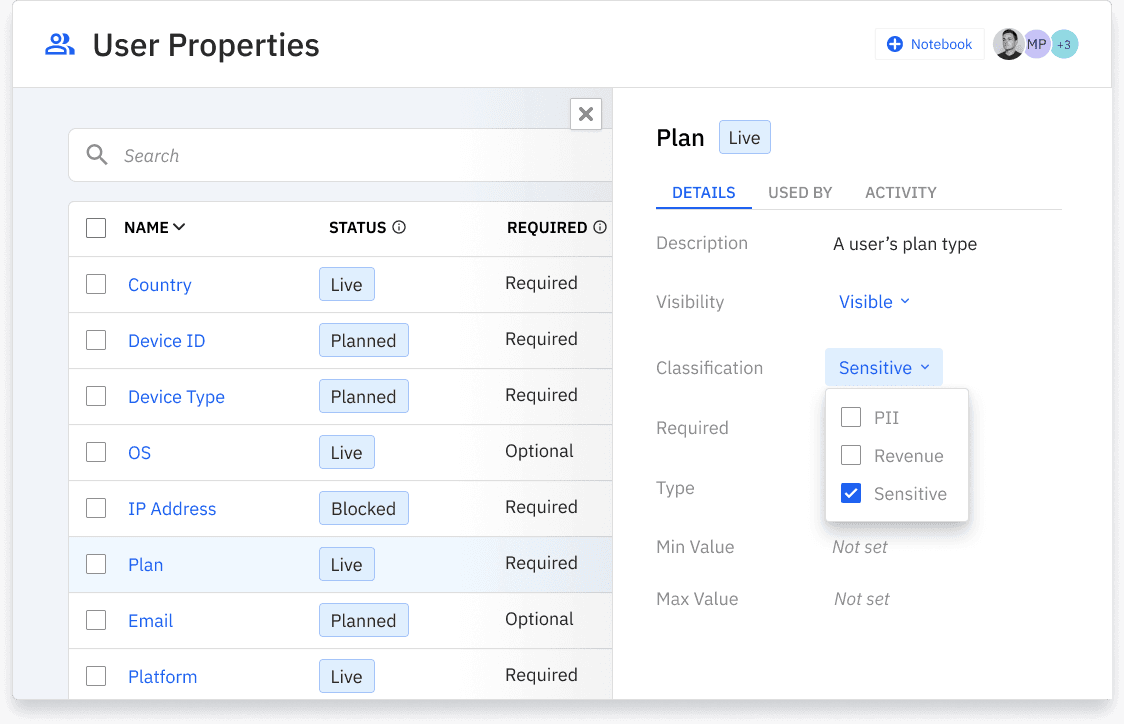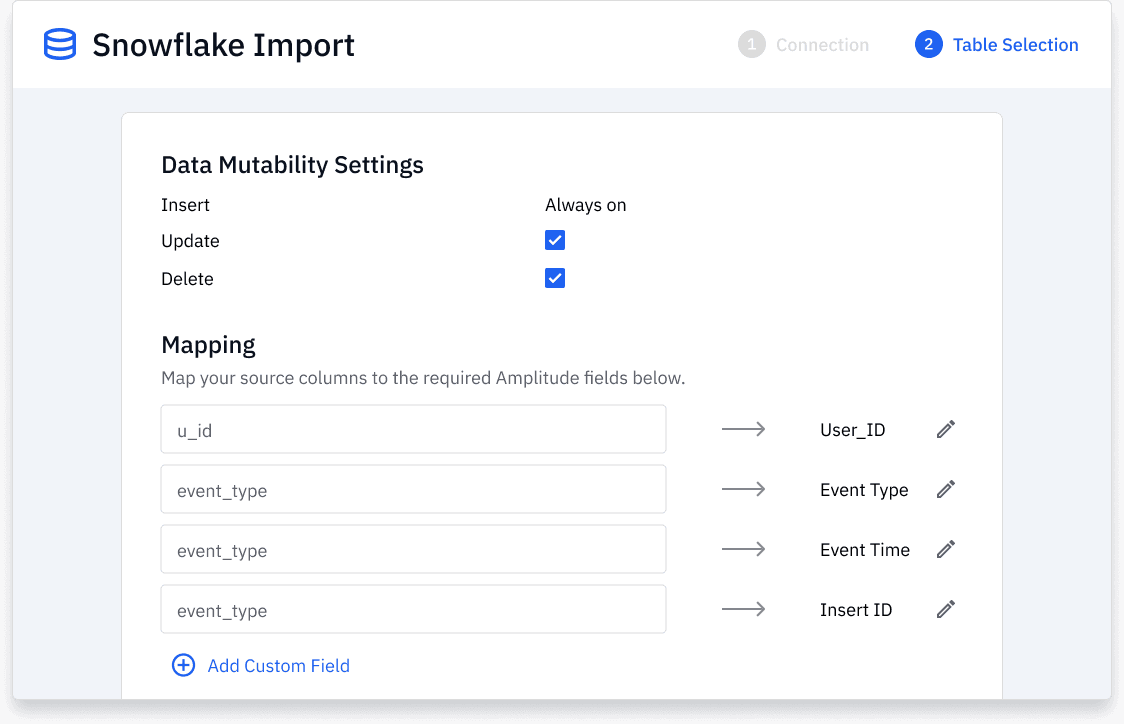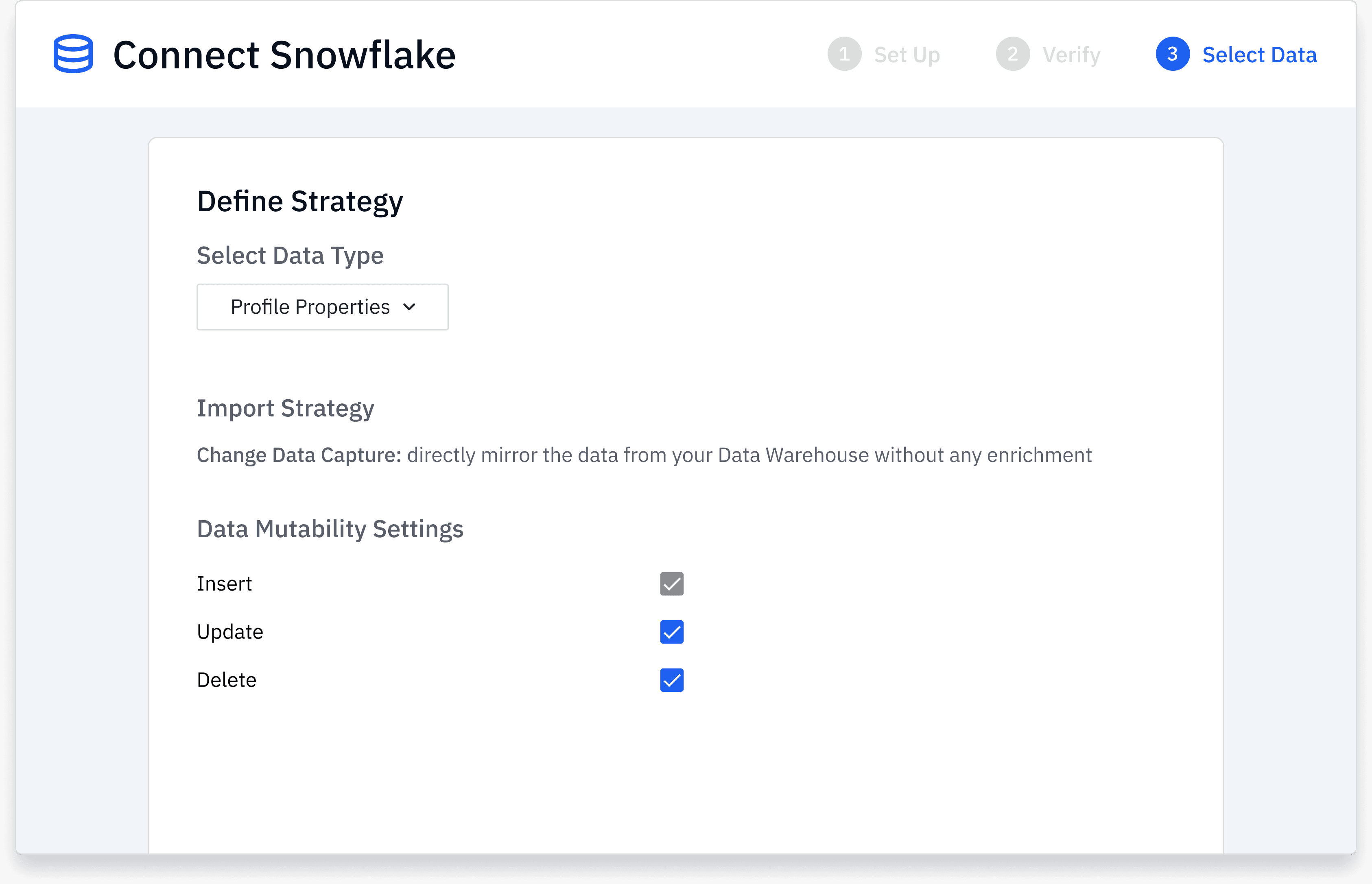10 Ways Amplitude Frees Up Your Data Team for Bigger Challenges
Get data maintenance and simple analyses off your plate so you can focus on high-impact work.
The core function of a data team is to deliver actionable insights. But as more and more people push to become data-driven, demands for insights multiply. Navigating requests from various stakeholders with different priorities while working to maintain data hygiene and tackle compliance issues is a challenge.
A tool that facilitates the basics—like governance and cleaning—enables data teams to focus on high-priority and high-impact analysis. To focus on the work that’s most interesting for them and most valuable to the company.
Amplitude does just that. Here are 10 ways Amplitude makes the work of data teams easier.
1. Connect your data ecosystem with extensive native integrations
Integrating data from different sources is time-consuming. On top of pulling in data from CDPs and warehouses, data teams often help other teams access data from places like HubSpot or Facebook ads. It’s also a challenge to maintain those data sources—checking that data is accurate and current.
Amplitude enables teams to collect and compile data from various sources in real time, with direct integrations to leading CDPs, cloud data platforms, and data warehouses. The integrations are self-serve, configurable, and no-code—making it easier to connect data with Amplitude.
To streamline data connectivity, we also consistently introduce new capabilities like:
- Snowflake Native Amplitude. Enabling teams to access and analyze data directly within their Snowflake Data Cloud.
- Databricks import. To securely access and extract live data from a Databricks workspace.
- Google BigQuery integration. Teams can easily import and export data to stitch product, marketing, web, and experience insights together with confidence. (Amplitude has successfully achieved Google Cloud Ready - BigQuery Designation.)
2. Easily set up custom data sources with a developer-friendly portal
Though Amplitude has over 130 integrations, data teams may sometimes want to build a custom data source.
The Amplitude Integration Portal simplifies a typically technically challenging and resource-intensive process. Your team can use our tools and resources, including comprehensive documentation, code samples, and best practices, to build their own native data source, cohort, or streaming destination.
Many key technology partners, like Humanic, UnitQ, and Sanity, have used this developer portal to set up a native integration and provide value to their end customers.
3. Simplify data privacy
Organizations face various data privacy regulations, such as GDRP and CCPA, and must navigate these regulations by ensuring that only the right people have access to the right data. Your marketing team might need access to aggregated user behavior data to analyze campaign effectiveness, while your finance team requires access to revenue data to track financial performance.
Data Access Controls enables you to create data access permissions to restrict access to PII, revenue, and sensitive data. This ensures that each team has access only to the data needed for their jobs without compromising privacy.

4. Enable code-generated, high-quality tracking with planning tools
A data catalog that teams can understand and trust is critical to success. However, inconsistencies and data tracking errors affect data reliability.
Amplitude Data enables you to establish a single source of truth for your data plan. Define your events, properties, and taxonomy standards in Amplitude. The strongly typed wrapper acts like an auto-complete as you write analytics code—helping you to choose the correct event names and properties. It eliminates errors, reduces typos, and speeds up development. Amplitude analytics also monitors incoming data to check it matches the spec you’ve laid out.
5. Keep data clean with retroactive correction tools
Many organizations have invested in centralizing their data within a data warehouse, such as Snowflake or Databricks. Still, they are challenged with staying in sync with the volume and changes taking place in the warehouse.
With Data Mutability, your product analytics data stays in perfect sync with changes in your data warehouse. This feature helps eliminate data drift and delivers the most accurate and up-to-date insights by ensuring you're always working from the single source of truth.

6. Enrich customer insights
There are scenarios where customer data, such as loyalty program status, resides within the data warehouse and needs to be joined with existing behavioral data in Amplitude.
Profiles functionality enables customers to enrich their existing behavioral data with customer profile data, including loyalty status, from Snowflake or Databricks to conduct more expansive analyses. Profiles work regardless of the event ingestion source, as they match based on user ID, and allow you to sync new dimensions to create deeper analyses without worrying about the availability at event time.

7. Improve data with the AI-powered Data Assistant
As your datasets grow, so does the challenge of maintaining high data quality. And when you’ve got multiple teams contributing and consuming data at the same time, things can quickly get out of hand.
Amplitude’s AI Data Assistant takes the grunt work out of data governance. By analyzing factors like event volume and the number of queries on a data point, Amplitude determines the importance of each event. It then evaluates events against best practices to give you a prioritized list of recommendations to improve data quality.
Acting on these suggestions is also easy with intelligent automation that suggests fixes—for instance, suggesting a category grouping for events that are missing categories.
8. Democratize access to data
Repeatedly addressing the same questions and developing the same reports is boring for data analysts. It’s also not an efficient use of their skills and experience.
Amplitude enables non-technical stakeholders to get self-serve insights, freeing data scientists up from fulfilling basic data requests so they can focus on more complex, valuable analyses. Data teams still support the rest of the organization, but that support looks more like reviewing and correcting analyses rather than answering queries from scratch. Empowering stakeholders to answer their own questions also gives them time back—because they’re not stuck in a data analysis bottleneck.
9. Relieve the burden on data engineering resources
It’s not just data analysts who want to be freed up for more strategic work. Data engineers are often overwhelmed with maintaining existing data infrastructure and fulfilling ad-hoc requests, leaving little time for high-impact tasks.
For example, data engineers might normally have to write custom SQL queries to compare multiple metrics (like conversion rates and page views) across various dimensions (like country or UTM source). But Data Tables in Amplitude enable you to slice and dice a rich dataset to create a custom analysis. Teams can quickly run analysis across a combination of user attributes, behavior, and different metrics.
10. Gain insights faster with automated analysis
Data overwhelm is real. Manually analyzing a mountain of data delays your ability to understand and act on key insights.
Amplitude shortens the learning loop by helping analysts instantly understand data changes with automated reports. The platform highlights important changes and actionable data so teams can move from insight to impact faster.
Journey analysis charts, for example, make it easy to find the answers to questions like:
- What are the most efficient conversion paths?
- Where do customers go once they sign up?
- Which steps lead them to their aha moment?
- What’s causing friction in onboarding?
Dreaming of a world where data is cleaner, more accessible, and easier to manage? Get started with Amplitude for free today, or check out this on-demand webinar, Lockdown your data, unlock your insights.

Luis Romero
Director of Product Marketing, Amplitude
Luis is a Product Marketing Director at Amplitude with over 20 years of experience in data, security, and governance. He has a technical background in information engineering and oversees Amplitude’s data and governance portfolio.
More from Luis




